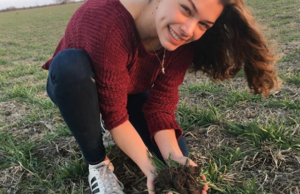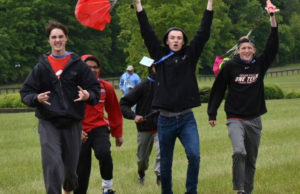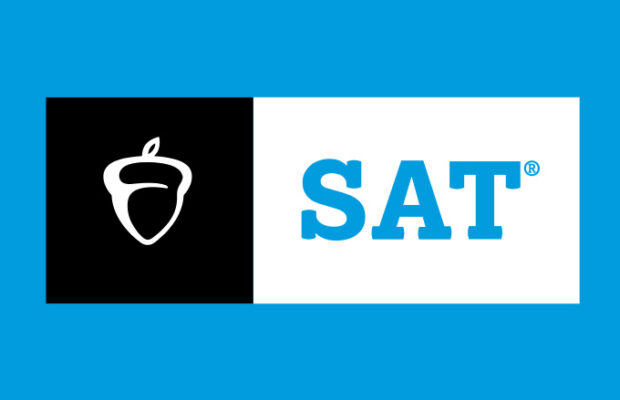1600 Pennsylvania Avenue: CFHS alumnus gains work experience at White House
By Willa Simmet 2008
Few students can say that they interned at the White House. 2001 CFHS graduate Madeleine Baker not only interned at the White House, but also in the U.S. Senate on the Environmental and Public Works Committee, and currently at the State Department.
Baker, a National Merit Scholar, applied for the internship at the White House on its website and was accepted.
“Ideally, being an intern is like being a new employee. You are actively involved in the work of your office,” Baker said.
Baker interned from January until May at the White House, and from May until August in the U.S. Senate. She ten worked at Resources for the Future, which is an environmental think tank, until the end of September. She will intern at the State Department until December. She was paid at Resources for the Future and received a stipend at the Senate, but received no pay at the White House or the State Department.
All of her internships count for college credit. In January she will go back to the University of Kansas in Lawrence for her last semester. She is majoring in political science and environmental studies.
Baker worked full time, normally 35 to 40 hours a week. Her office had five undergraduate interns, but Baker said, “It definitely ranged across offices. I heard Sen. (Hilary) Clinton’s office had 30 interns.”
Baker lives with her cousin, a nurse at George Washington University Hospital, in an apartment in Maryland. Her apartment is two blocks from the Metro (the DC subway system).
One of Baker’s accomplishments was organizing a meeting in the vice president’s ceremonial office for representatives from federal agencies to discuss U.S. government ocean policy.
“It was a lot of work, but the meeting went well, and I got to meet a few secretaries which are the head of federal departments, like the USDA or Department of Transportation,” Baker said. “Working in the White House was an eye-opening experience. I met a lot of intelligent, hard-working people. While I may not have always agreed with the opinions, they were all good people trying to solve big and little problems. I gained a lot of respect for the institution of the presidency, which I think people have lost given recent scandals.”
Baker said she enjoyed working at the Senate because the Energy Bill was debaated this summer. She wrote talking points for a senator, made charts to be used on the floor of the Senate and compiled research on global warming.
Last week was her first week at the State Department, and already she got to help with a huge internationa conference on how to deal with a potential pandemic of bird flu. Delegates from 150 different countries attended this conference.
Baker credits her White House skills to her roots.
“Cedar Falls was a great high school because there are so many classes and extracurricular activities,” Baker said.
She gives credit to Steve McCrea, Dianne Engel and Charles Blair-Broeker, all teachers at Cedar Falls High School, for encouraging her curiosity in social science. English Scott Lawrence-Richards, Marguerite DeMoss and Judy Timmins all helped her develop good writing skills.
Her advice to CFHS teachers is to take lots of different classes to expose themselves to different ways of thinking.
“If you’re interested in politics and government, real experience is priceless,” she said.
Some of Baker’s ideas are to volunteer for a local or state candidate, keep up with international news, study abroad in college and read books for more in-depth discussions of topics you find interesting.
DeMoss, a former teacher of Baker’s and someone who Baker gives credit to for her good writing skills, recommended Baker read The Prince by Niccolo Machiavelli. Machiavelli and the ideas she discovered in his book marked the beginnings of her interests in political science.
“it is very exciting because I love politics and current events,” DeMoss said when she found about Baker’s internship.
Engel, also a former teacher of Baker’s, said, “For a high school student, she was extremely internationally minded. She was very self-motivated and mature. She wanted to learn about the world.”
A DAY IN THE WHITE HOUSE (excerpt from Madeline Baker’s blog)
Any given day included lots of administrative tasks, such as answering the phone, sorting the mail and faxes, and making photocopies. Some days I attended meetings with representatives from various federal agencies.
Some days I would invite people to meetings. I occasionally got to pick up or deliver something to the West Wing of the White House.
I would often get calls from people wanting to talk to the president or comment on the president.
At 4:30 I went to the chairman’s office (he’s the environmental adviser to the president). I would answer his phone and take messages, schedule appointments, set up White House cars to pick him up and take him to meetings and greet people coming in for meetings. Sometimes I would call senators, generals or secretaries for him. I got to see every day how busy Mr. Connaughton was. He got to ride in the presidential limo when the president threw the first pitch at the first Washington Nationals baseball game.
Overall, it was a lot of administrative stuff. But that was what the staff needed — especially because I could do it fast and efficiently.
The Senate, RFF and State Department have all had me work on more substantive projects, especially background research and writing papers.








You must be logged in to post a comment Login